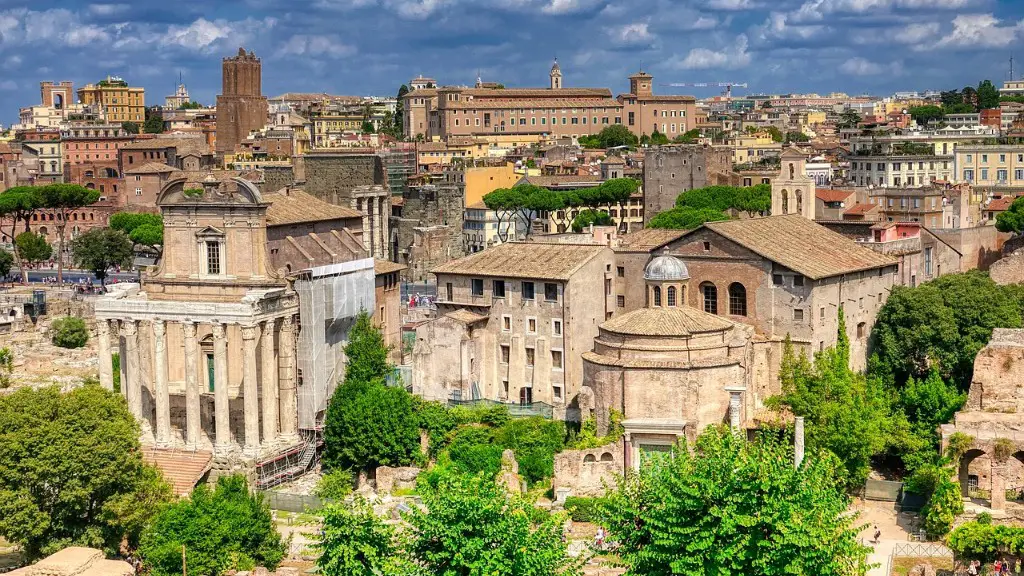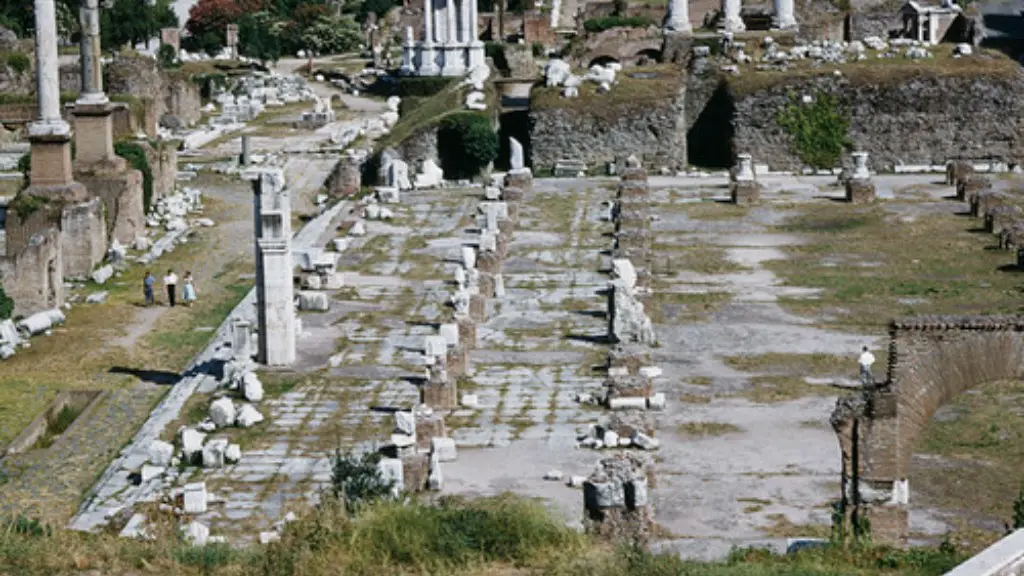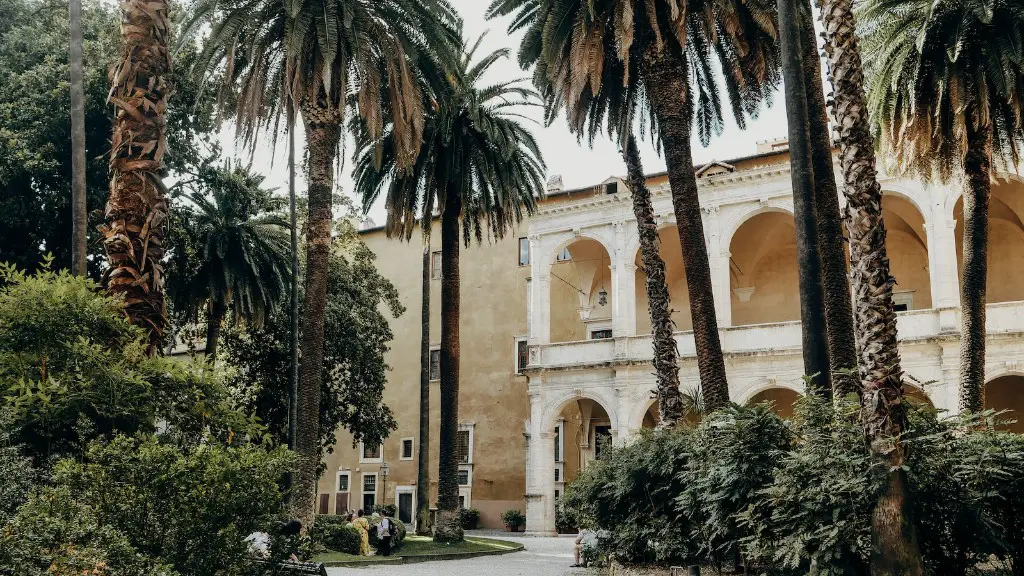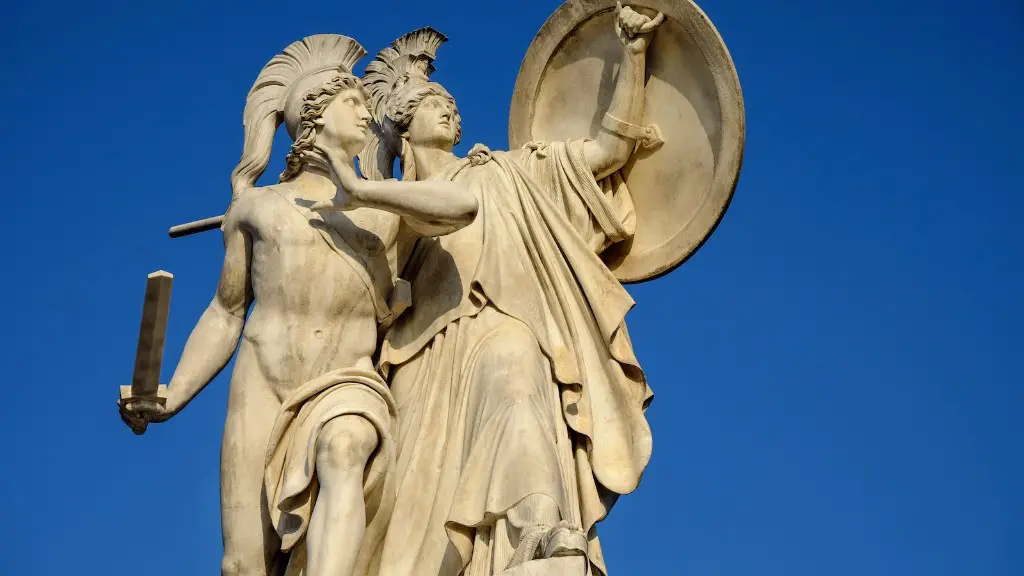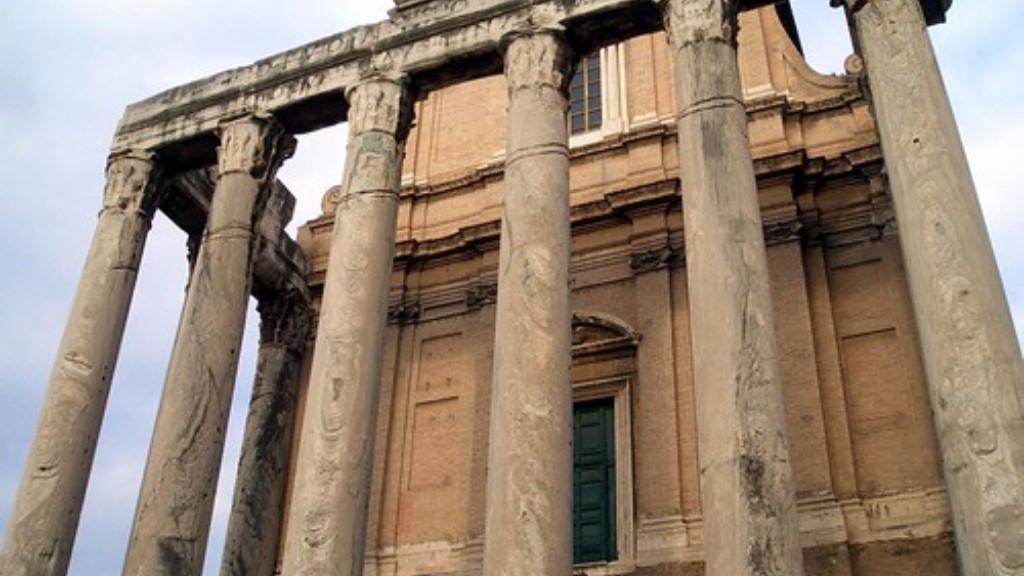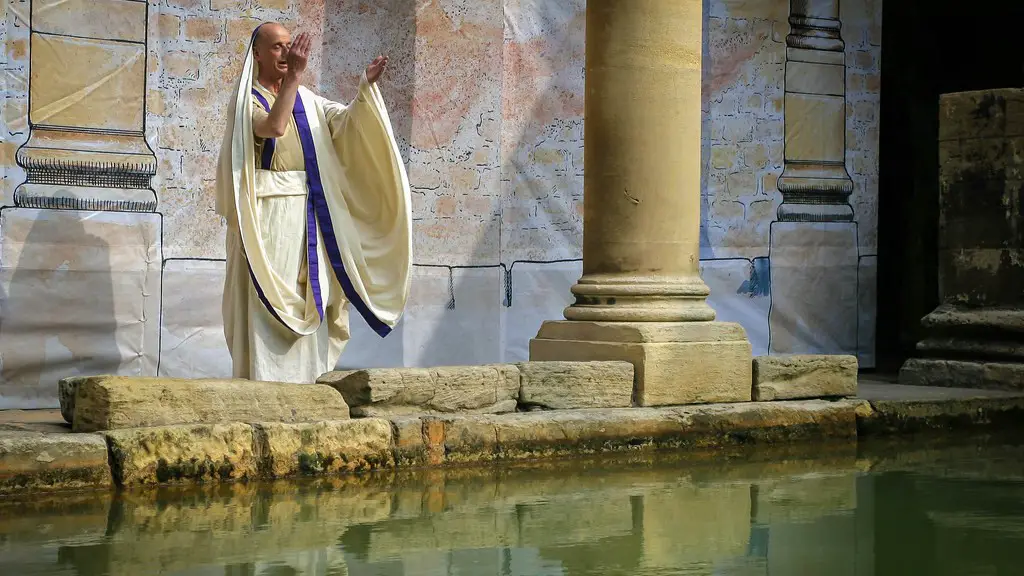The Ancient Romans had a deep and abiding belief in gods and goddesses. They were polytheistic, which means that they believed in and worshipped many different gods. The origins of their worship went all the way back to the pre-Roman civilisations of Italy, where Etruscan and Greek religions heavily influenced the Romans’ religious outlook. Ancient Roman gods and goddesses were often adopted from neighbouring cultures and, in turn, lent their acclaim to other gods and goddesses in the expanding Roman Empire.
It’s important to understand that Roman religion was centered around state cults and traditions. The public cult of the state was enacted through rituals that were designed to ensure the favour of the gods and the success of the Roman people. The state cult also involved a ritualised relationship between the gods, the Roman Senate and the rest of the people. This relationship was known as the Pater Patriae and was composed of the Senate, the Emperor and the gods, who were said to be the father of the people.
In addition to state-sponsored rituals and religious practices, there were also various forms of private worship. Private worship of the gods often involved rituals that were focused on particular gods, such as Vesta or Mars. During private worship, individuals or groups would pray to the gods, make offerings, and perform other ritualized activities such as animal sacrifices.
To the Ancient Romans, the gods were viewed as powerful beings that had the ability to shape their lives and destinies. The gods were seen as the source of all good fortune and misfortune, and Roman religion was focused on appeasing the gods and seeking to manipulate their favour. This was thought to be possible through offerings, sacrifices, and prayers. In addition, they believed that the gods could be invoked through rituals such as augury, or divination, in which an animal was sacrificed to the gods and its organs inspected as omens.
The importance of the gods and goddesses to the social and political fabric of Ancient Rome cannot be underestimated. The gods were deeply ingrained into Roman life and culture and were believed to determine the fate and success of the state. They were also believed to be a vital source of protection for the people of Rome and were venerated for their divine power and creative abilities. It was through the gods and goddesses that the Ancient Romans sought guidance and direction, and their lives were profoundly shaped by their beliefs in the power of the gods.
Ceremonies and Festivals
As in other ancient cultures, the Ancient Romans celebrated various ceremonies and festivals that were held in honour of the gods. These were often elaborate affairs and included feasting, music, and drama. The most important ceremonies were those that commemorated the accession of the gods. During these ceremonies, the gods were honored with gifts and offerings, and prayers were offered to them in hopes of obtaining their divine protection.
The gods of the Romans were also honored with certain festivals throughout the year. These festivals usually focused on a specific god or gods and featured sacrifices, processions, and other activities dedicated to their honour. Popular festivals included the Liberalia, which was held in honour of Jupiter, and the Saturnalia, which was held to celebrate the god Saturn. Additionally, games and theatrical performances were staged in honour of the gods.
In Ancient Rome, religion was a highly personal experience. People could choose the gods and goddesses that they wished to worship, and personal devotion to particular gods was common. It was also very important for individual Romans to show piety to the gods and goddesses in order to ensure their wellbeing and success. This often involved offering small gifts, such as flowers, coins, or other symbols of appreciation, at shrines and temples dedicated to particular gods and goddesses.
An important part of Roman religion was the concept of pietas, meaning reverence and devotion to the gods. This was seen as an essential part of life and was exemplified by exemplary behavior, including the honoring of ancestral traditions and the upholding of Roman morals and values. Through the concept of pietas, the gods were seen as agents of morality and order, and Romans sought to emulate their virtues in order to gain divine favor and favor of the gods.
Romanization of Other Religions
As the Roman Empire expanded, the gods and goddesses of the conquered lands were adopted and brought into the Roman pantheon. This often involved the introduction and adaptation of new festivals, rituals, and religious customs from the cultures that were encountered. For example, when the Romans conquered the Greeks, their gods were absorbed into the Roman pantheon, and the rituals and ceremonies associated with them were adopted by the Roman people. This process of religious assimilation allowed for the creation of a unified religion across the Roman world.
The gods of the ancient Greeks and other cultures also often had similar roles and functions to the Roman gods and goddesses, and they were viewed as being interchangeable or combined. For example, to the Romans, there was no qualitative difference between the Roman goddesses Juno and the Greek goddess Hera, and they were often treated similarly. This process of interchangeability often blurred the boundaries of the gods, and in some cases, gods from different cultures were given the same roles and worshipped together.
The importance of the gods and goddesses to the Ancient Romans was immense. They were thought to be the source of protection, guidance, and prosperity, and were venerated for their creative power and ability to shape the lives of the people of Rome. Religion, and the worship of gods and goddesses, was an integral part of Roman life and it was through their faith and devotion to the gods that the Ancient Romans sought to ensure their own wellbeing and success.
Mythology as a Tool for Governance
The belief in gods and goddesses was tightly integrated with the political and administrative apparatus of the Roman Empire. Roman mythology provided the ideological justification for the establishment of the Roman state and the central authority of the Emperor. As the gods and goddesses had given their favour to the Roman people, it was believed that the Roman people had a divine mandate to rule over the other peoples of the Empire.
The gods were also used as symbols of Roman power to help maintain order. The gods were invoked to reinforce Roman values, such as pietas, and to promote a sense of community amongst the Roman people. Additionally, the Temple of Jupiter Capitolinus was the political and spiritual centre of Roman life and was a powerful symbol of the unity of the Roman state.
The gods and goddesses of Rome were also symbols of justice and were believed to be responsible for ensuring that justice was served. Sacrifices were carried out in the name of justice and, it was believed, would secure divine favour. People also sought to invoke the gods as protectors of their families and homes, and it was believed that the gods could intervene on behalf of those who venerated them.
Roman worshippers of the gods
The Ancient Romans were devoted and faithful worshippers of the gods, and public and private religious practices constituted a major part of Roman life. From the state cult of the Pater Patriae to individual and familial rites, temples, shrines, and the festivals of the gods, the entire civilization revolved around the relationship between the gods and the people of Rome.
The gods were seen as being responsible for all aspects of life, and people often sought to manipulate their favour by offering gifts, performing rituals and ceremonies, and even manipulating political and social dynamics to ensure the success of their people. People venerated the gods through acts of piety, such as upholding family values and moral obligations, and were often rewarded for their faith and devotion.
The gods and goddesses of the Ancient Romans were important symbols of power, protection, and prosperity, and their worship structured the lives of the people of Rome. The gods were seen as being responsible for both the successes of the Roman people and the failures, and it was through faith and devotion that they sought to ensure the favour of the gods and the success of their state.
The Decline of Roman Religion
As the Roman Empire declined, so too did the importance of the gods and goddesses. With the arrival of Christianity, the gods and goddesses of the Ancient Romans began to be replaced by the ONE God of Christianity. This shift in beliefs began to erode the importance of the gods, and the religious practices of Roman religion began to fade away.
While the gods and goddesses were no longer the focus of religious life, their influence and importance to Roman culture can still be seen. Roman gods and goddesses were adopted into the Christian pantheon, many of their festivals were adapted into Christian festivals, and the pantheon of gods and goddesses still retains much of its power and sway in the Roman world.
The gods and goddesses of Rome were an integral part of Roman life and were central to the success of the Roman Empire. They provided the people of Rome with protection, guidance, and prosperity, and their importance and influence was immense. Though the gods have now largely been replaced by Christianity, their influence remains to this day, and their importance to the Ancient Romans cannot be discounted.
Conclusion of Pagan Practices
The decline of Roman religion began in the late Republic period, when Christianity began to gain a foothold in the empire. With the rise of Christianity and the decline of paganism, many of the traditional festivals and rituals of the old gods and goddesses were replaced by more Christian-centric practices. Eventually, paganism was outlawed by Emperor Theodosius in the Fourth Century AD. As Christianity grew, so too did the influence of the Church, and the gods of the old religion began to fade away.
Despite the decline of the old gods, their influence remains in many aspects of modern life. From literature to popular culture, the gods and goddesses of the Ancient Romans still have a presence in our lives. Their importance to the Ancient Romans, and the role they played in their lives and culture, cannot be understated. As we explore the past, it’s important to understand the influence of the gods and goddesses on the Ancient Romans and to appreciate their powerful legacy.
